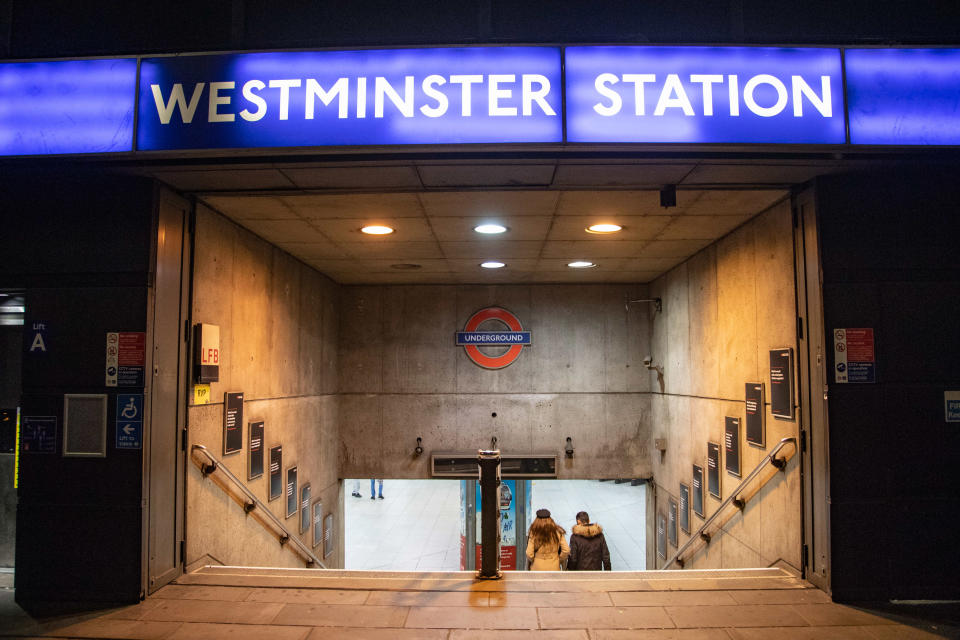Tenants warned over sub-letting as Airbnb host fined £100,000

Renters are being warned not to break tenancy rules after figures revealed more than one in 10 renters are using home-sharing sites and a council tenant was evicted for renting his flat on Airbnb.
About 12% of social housing tenants, private tenants and homeowners all say they have sub-let their homes on a home-sharing website in the past year, analysis by Yahoo Finance UK of the government’s latest English Housing Survey shows.
There is “growing concern” among local authorities in London at the rise of short-term lets facilitated by such sites, with particular alarm and calls for new powers to tackle antisocial behaviour in sub-let properties.
The warnings come after a London council tenant was evicted and ordered to pay more than £100,000 in fines by a court for letting out his home for years on Airbnb.
READ MORE: London property market suffers worst year in a decade as Brexit bites
Toby Harman, 37, was found to have broken the rules of his tenancy after a probe found his flat in Victoria had more than 300 reviews on the home-sharing site dating back to 2013
Westminster council, which owns the property, is investigating more than 1,500 properties in the central London borough alone for potential “abuses” of short-term lets, and has echoed the London mayor’s call for a national register of such casual renting on various sites.
It says illegal sub-lets in social and privately rented properties are being used for sex work, regular parties, music events and overcrowded stays, as well as reducing the number of homes available for people to live in.
Some lets on such sites are likely to be breaching contracts signed with private landlords, social housing landlords or even mortgage and insurance providers, which can include clauses banning short-term lets.
READ MORE: Apartment prices plummet as more and more Londoners rent
Councillor Darren Rodwell, member for housing at the London Councils group which represents local authorities in the capital, told Yahoo Finance UK: “These statistics are the latest evidence of why London’s short-term lets market is a growing concern.
“London boroughs need stronger regulatory powers over this market so that we can protect much-needed housing stock, and in particular social housing, and take swift action against any anti-social behaviour occurring in short-term lets.
“We’re calling on the government to empower councils so that we can better support our local communities and ensure homes are being used for the purpose for which they are so badly needed.”

Amy Simmons, head of policy at the National Housing Federation which represents social landlords, said: “There is a huge shortage of social housing in England which means it is really important that those who need it most can access it.
“Our guidance to social housing tenants would be to check with their housing provider on policies relating to subletting to make sure that they do not act in breach of their tenancy.”
Westminster councillor Andrew Smith, cabinet member for housing services, said: “Social housing is there to provide much-needed homes for our residents, not to generate illicit profits for dishonest tenants.
“It’s illegal for council tenants to sublet their homes and we carry out tenancy checks, as well as monitoring short-term letting websites for any potential illegal sublets.”
READ MORE: Fewer than half of Britons ever expect to earn more than £30,000 a year
An Airbnb spokeswoman told Yahoo Finance UK: "This property was removed from Airbnb earlier this year. We want to be good partners to cities, which is why we regularly remind hosts to check and follow local rules – including on subsidised housing - and we take action on concerns brought to our attention.”
She said Airbnb was the only website working alongside London authorities to limit short-term lets, and said it backed demands for a “clear, simple and host-friendly” register of such lets across all platforms in London.
Home-sharing was an “economic lifeline” for many families in the capital, she added, with more than half of hosts saying they relied on the additional income and average rentals of under four nights a month.
Airbnb hosts are told on its website to ensure they have the right permissions and follow local rules when they list properties on the site, with renters urged to check with landlords.
Short-term lets have increased “significantly” in recent years because of the rise of so-called peer-to-peer accommodation services like Airbnb, according to a report by House of Commons researchers last year.
It said the model helps hosts earn extra income and helps guests benefit from cheaper, more varied accommodation often in private homes than traditional options like hotels.
But it highlighted concerns over reports of noise and antisocial behaviour, higher property and rent prices for locals and whether users were obeying tax, health and safety and planning rules.

 Yahoo Finance
Yahoo Finance 